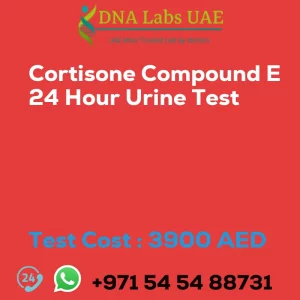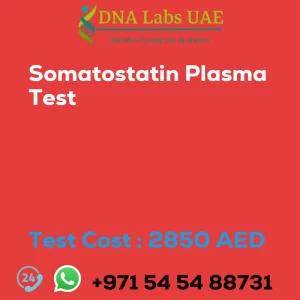BOH BAD OBSTETRIC HISTORY ADVANCED PANEL Test
Test Name: BOH BAD OBSTETRIC HISTORY ADVANCED PANEL Test
Components:
- Phospholipidantibodies Panel, IgG & IgM
- Anti Nuclear antibody / Factor (ANA/ANF)
- TSHUltrasensitive
- Lupus anticoagulant by dRVVT
- Cardiolipin antibodies panel, IgA, IgG & IgM
- Torch panel IgG & IgM
Price: 1520.0 AED
Sample Condition: 4 mL (3 mL min.) serum 1 SST. Ship refrigerated or frozen AND 4 mL (3 mL min.) Platelet Poor Plasma (PPP) from 3 Blue Top (Sodium Citrate) tubes. Mix thoroughly by inversion. Transport to Lab within 4 hours. If this is not possible, make PPP within 1 hour of collection as follows: Centrifuge sample at 3600 rpm for 15 min. & transfer supernatant to a clean plastic tube. Centrifuge this supernatant again at 3600 rpm for 15 mins. & finally transfer the supernatant (PPP) to 1 labelled, clean plastic screw capped vial. FREEZE IMMEDIATELY. Ship frozen. DO NOT THAW. Overnight fasting is preferred. Duly filled Coagulation Requisition Form (Form 15) is mandatory.
Report Delivery: Sample Tue / Fri by 9 am; Report Next day
Method: CLIA, EIA, Electromechanical clot detection
Test type: Bad Obstetric History
Doctor: Gynecologist
Test Department: IMMUNOPATHOLOGY
Pre Test Information: Overnight fasting is preferred. Duly filled Coagulation Requisition Form (Form 15) is mandatory. It is recommended that the patient discontinues Heparin for 1 day and Oral Anticoagulants for 7 days prior to sampling as these drugs may affect test results. Discontinuation should be with prior consent from the treating Physician.
Test Details:
The BOH (Bad Obstetric History) Advanced Panel test is a specialized diagnostic test that is performed to assess the risk factors and potential causes of recurrent pregnancy loss or adverse pregnancy outcomes. It is typically recommended for women who have experienced multiple miscarriages, stillbirths, or other complications during pregnancy.
The BOH Advanced Panel test includes a comprehensive evaluation of various factors that can contribute to pregnancy loss, such as genetic abnormalities, hormonal imbalances, blood clotting disorders, autoimmune conditions, and infections. The test may involve several components:
- Genetic Testing: This involves analyzing the chromosomes of both the parents to identify any genetic abnormalities that could be passed on to the fetus and increase the risk of pregnancy loss.
- Hormonal Evaluation: This includes assessing the levels of hormones involved in maintaining a healthy pregnancy, such as progesterone, thyroid hormones, and prolactin.
- Blood Clotting Disorder Screening: This involves testing for conditions like antiphospholipid syndrome, which can increase the risk of blood clots forming in the placenta and lead to pregnancy complications.
- Autoimmune Testing: This includes checking for autoimmune disorders like lupus or antinuclear antibodies (ANA) that can affect pregnancy outcomes.
- Infection Screening: This involves testing for infections that can cause pregnancy complications, such as bacterial vaginosis, urinary tract infections, or sexually transmitted infections.
By conducting the BOH Advanced Panel test, healthcare providers can identify any underlying factors that may be contributing to recurrent pregnancy loss and develop a personalized treatment plan to minimize the risk of future complications. This may include lifestyle changes, medications, hormonal therapies, or other interventions depending on the specific findings of the test.
| Test Name | BOH BAD OBSTETRIC HISTORY ADVANCED PANEL Test |
|---|---|
| Components | *Phospholipidantibodies Panel, IgG & IgM *Anti Nuclear antibody / Factor (ANA/ANF) *TSHUltrasensitive*Lupus anticoagulant by dRVVT*Cardiolipin antibodies panel, IgA, IgG & IgM*Torch panel IgG & IgM |
| Price | 1520.0 AED |
| Sample Condition | 4 mL (3 mL min.) serum 1 SST. Ship refrigerated or frozen AND 4 mL (3 mL min.) Platelet Poor Plasma (PPP) from 3 Blue Top (Sodium Citrate) tubes. Mix thoroughly by inversion. Transport to Lab within 4 hours. If this is not possible, make PPP within 1 hour of collection as follows: Centrifuge sample at 3600 rpm for 15 min. & transfer supernatant to a clean plastic tube. Centrifuge this supernatant again at 3600 rpm for 15 mins. & finally transfer the supernatant (PPP) to 1 labelled, clean plastic screw capped vial. FREEZEIMMEDIATELY. Ship frozen. DO NOT THAW. Overnight fasting is preferred. Duly filled Coagulation Requisition Form (Form 15) is mandatory. |
| Report Delivery | Sample Tue / Fri by 9 am; Report Next day |
| Method | CLIA, EIA, Electromechanical clot detection |
| Test type | Bad Obstetric History |
| Doctor | Gynecologist |
| Test Department: | IMMUNOPATHOLOGY |
| Pre Test Information | Overnight fasting is preferred. Duly filled Coagulation Requisition Form(Form 15) is mandatory. It is recommended that patient discontinues Heparin for 1 day and Oral Anticoagulants for 7 days prior to sampling as these drugs may affect test results. Discontinuation should be with prior consent from the treating Physician. |
| Test Details |
The BOH (Bad Obstetric History) Advanced Panel test is a specialized diagnostic test that is performed to assess the risk factors and potential causes of recurrent pregnancy loss or adverse pregnancy outcomes. It is typically recommended for women who have experienced multiple miscarriages, stillbirths, or other complications during pregnancy. The BOH Advanced Panel test includes a comprehensive evaluation of various factors that can contribute to pregnancy loss, such as genetic abnormalities, hormonal imbalances, blood clotting disorders, autoimmune conditions, and infections. The test may involve several components, including: 1. Genetic Testing: This involves analyzing the chromosomes of both the parents to identify any genetic abnormalities that could be passed on to the fetus and increase the risk of pregnancy loss. 2. Hormonal Evaluation: This includes assessing the levels of hormones involved in maintaining a healthy pregnancy, such as progesterone, thyroid hormones, and prolactin. 3. Blood Clotting Disorder Screening: This involves testing for conditions like antiphospholipid syndrome, which can increase the risk of blood clots forming in the placenta and lead to pregnancy complications. 4. Autoimmune Testing: This includes checking for autoimmune disorders like lupus or antinuclear antibodies (ANA) that can affect pregnancy outcomes. 5. Infection Screening: This involves testing for infections that can cause pregnancy complications, such as bacterial vaginosis, urinary tract infections, or sexually transmitted infections. By conducting the BOH Advanced Panel test, healthcare providers can identify any underlying factors that may be contributing to recurrent pregnancy loss and develop a personalized treatment plan to minimize the risk of future complications. This may include lifestyle changes, medications, hormonal therapies, or other interventions depending on the specific findings of the test. |







